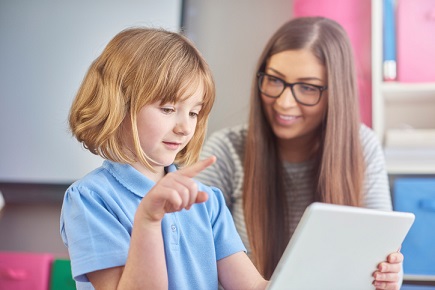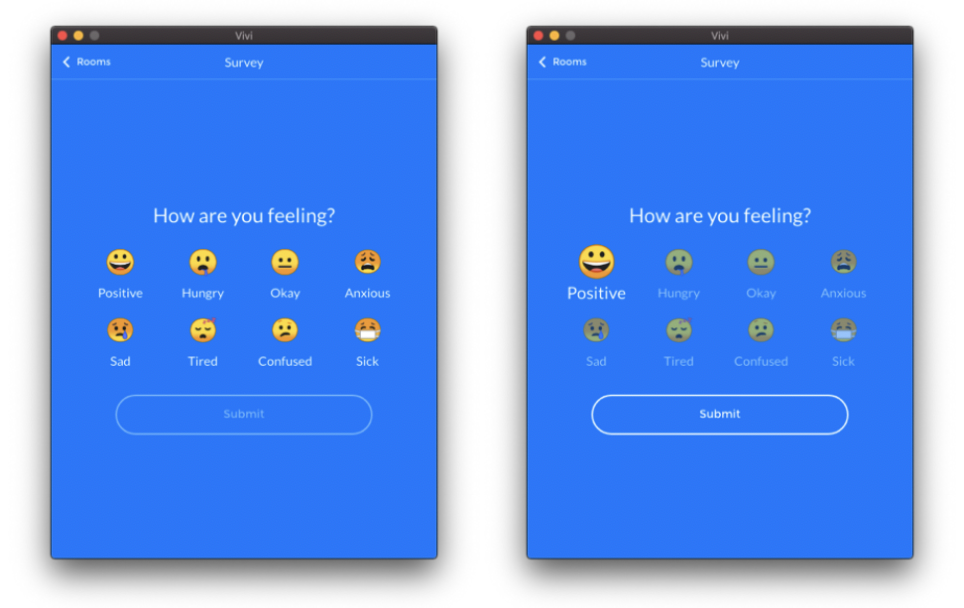
A state of wellbeing in young people is the foundation of strong mental health.
It enables students to cope with everyday stresses and be better prepared for more life-altering situations, such as the current coronavirus pandemic.
According to the Victorian Government in Australia, half of all mental disorders emerge by the time people are 14 years old and three quarters by 25 years old – the same period when most people are in education.
Promoting and prioritizing student wellbeing helps students navigate their school years, remain durable during times of adversity, develop strong mental health and provide them with the confidence and calmness to seek help and ask questions when things become overwhelming.
The Australian Psychological Society (APS) says that while the number of coronavirus cases rise across Australia, the level of anxiety within the younger community will inevitably increase.
While it’s true that most schools promote a wellbeing framework to support students and create learning environments that enable them to be healthy, happy and engaged, situations like the current global pandemic cannot be planned for.
So, how can we help promote student wellbeing during COVID-19 and subsequent isolation resulting in remote learning?
Tech companies have been frantically coming up with ways to help students cope while remote learning by helping schools remain engaged. At Vivi, we’ve developed How R U?, a virtual student feedback tool that enables schools to check in on students’ welfare whilst learning remotely via a simple emoji-based poll.

However, it’s what is done with this information that is crucial.
Erica Frydenberg, Ph.D. an Associate Professor of Psychology at Melbourne University is a world-leading psychologist in the field of adolescent coping and an acclaimed writer. According to Frydenberg, promoting student wellbeing consists of strategies such as working to solving problems while maintaining a social dimension, asking for help when you need it and knowing where to seek support. She also recommends relaxing and physical recreation, as well as attempting to improve the significant relationships in one’s life.
The techniques Frydenberg writes about promote and maintain self-esteem leading to a sustained sense of wellbeing. Some of the ways we can help students include:
Staying connected
Organizing study/work sessions with peers via video conferencing technology such as Zoom or Skype. However, it’s important that communication remains positive. Schools can use the data collected from How R U? to focus their attention on those that may need extra support, while parents can check in to ask about students’ feelings and concerns.
Staying engaged
It’s important that students aren’t expected to receive the same level of instructional support at home as they would from school; however, there are ways to ensure engagement levels remain high as remote learning has become the new norm.
Students can break down learning requirements into manageable blocks and if they don’t understand something, asking teachers or classmates online can help alleviate stress and frustration. If teachers are unavailable, Who else can student’s turn to for support? And finally, if something can’t be managed effectively, simply move on to another task.
Staying calm
Let’s face it, these are bizarre times we find ourselves in. For students, it can be extremely unsettling. To help encourage a positive frame of mind, it’s important to be honest about COVID-19 with students and present them with facts.
As the Australian Psychological Society is tells us, constant media coverage about the coronavirus can keep us in a heightened state of anxiety. Try to limit related media exposure and instead seek out factual information from reliable sources.
Staying calm also requires self-care. Everybody practices self-care differently, but some examples of ways to promote student wellbeing is to encourage regular exercise, a good diet and making time for activities and hobbies.
Reaching out for support
Remember, there are professionals out there who are equipped to help children with mental health and wellbeing issues. If you feel the stress or anxiety of a student is heightened as a result of the coronavirus, a psychologist may be able to help.
There are a number of ways to find the right psychologist for you, but as a start you can visit:
- findapsychologist.com.au in Australia
- apa.org in the US.
Currently, there are many resources available through the works of Erica Frydenberg, Ph.D. that offer resilience, wellbeing and coping strategies for children. At Vivi, we have partnered with Erica to ensure we are in the best position to help transition everyone to this new world of remote learning and continue to drive engagement while developing the coping strategies necessary.



